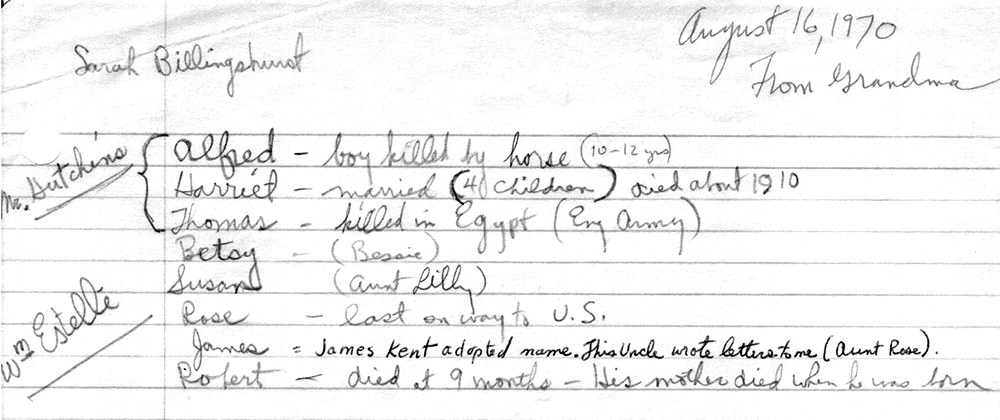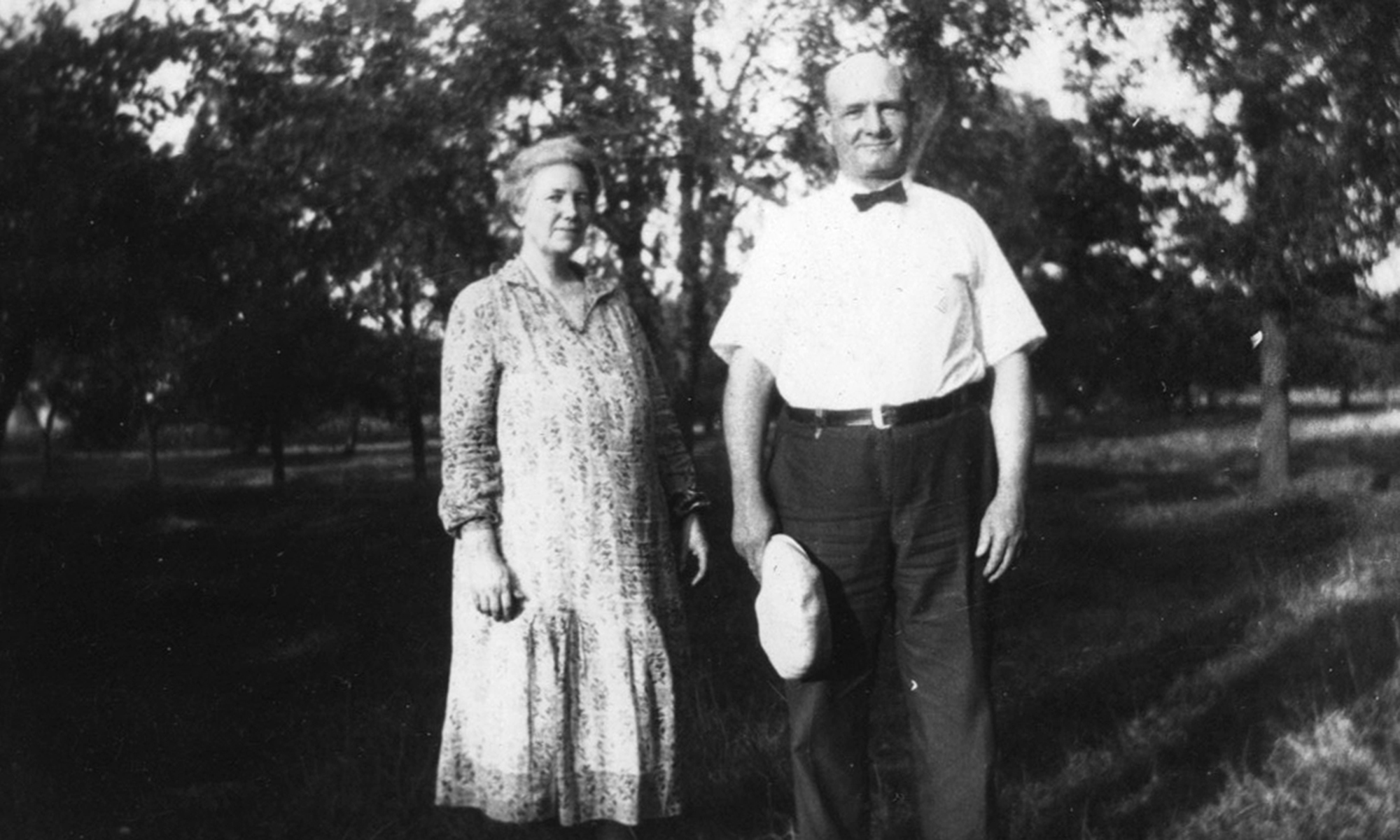Bessie Estelle (my grandmother) and her younger sister Lily were orphans from the poverty-plagued east end of London. Their mother died when Bessie was eight, their father abandoned them when she was ten. The sisters were left adrift in a world where even their identities were somewhat illusionary, as it turned out. As a result, uncovering Bessie’s history was a challenge.
I had a note from my father showing that Bessie’s mother was Sarah Billingshurst, who’d had children by her first husband Mr. Hutchins as well as with her second, William Estelle. The Billingshurst name was confirmed by Lily’s marriage license which showed her mother’s maiden name.

I found Bessie and Lily’s arrival cards to the U.S., dated 1911, in which Bessie and Lily identified the orphanage they came from in Canada. That too was useful information. The cards also identified their “race” as French. I remembered that Bessie, many years later, told me that her family was from France.
So that was a start:
✔ Merry orphanage in Canada
✔ Father an Estelle
✔ Mother a Billingshurst
✔ Family from France.
However, like a driver in winter, I couldn’t find traction with the information and was spinning my wheels trying to research the family on line. Finally, out of desperation I wrote the Barnardo’s organization, who’d inherited the Merry orphanage records, to ask if they had any information on Bessie Estelle. Their answer was yes, they have a record of Bessie Estall. And that was when the wheels finally hit pavement.
Apparently some time after arriving in Canada, Bessie’s surname evolved from Estall to Estelle. That’s not unusual, as many European names were changed when they landed on North American ears. Estall (‘es-til) and Estelle (es-‘tell) are quite similar.
But I was still stuck on the Billingshurst and the French heritage angles until my sister found an Estall family tree on the internet and suggested I look into it. That proved to be a turning point, thanks to the amazing work of Mark and Kim Baldacchino.
So where did Bessie’s mistaken ideas about her origins come from?
It turned out that Bessie’s mother was Sarah Hutchings (1860-1899). Sarah was the daughter of William and Harriet (née Montgomery) Hutchings. When Sarah was an infant, her father died and her mother married a Robert Billingshurst, who helped raise Sarah. Robert apparently never formally adopted Sarah, and Sarah later in life had her first three children under her maiden name of Hutchings.
(To further muddy the water, there are no records of Sarah’s “father” outside of her birth certificate; that is, there’s no record of his marriage or of his death. Hence, there is a strong probability that Sarah’s father and her surname were fictitious, invented by her mother to cover up an illegitimate birth.)
And the idea that the family was French? Well, there’s a story that may or may not explain that notion.
Before William Estall married Sarah Hutchings in 1891 he lived with a married woman named Sarah (nee Whitmarsh) French. French had two young children by her husband, to which William Estall added a pair for good measure. William, however, didn’t stay around, leaving his two children for Sarah French to raise when she reunited with her husband.
William Estall and Sarah Hutchings had eight children to raise and were eking out a living in the slums of the East End of London until Sarah died of meningitis at age 39. William, himself in poor health, turned to the poor house for help. When he and the children got out a couple of years later, William took his kids to live with their half-sister in the Sarah French household. I can almost hear him now, “C’mon, kids, I’m takin’ ya to live with yer French family.” How was a ten-year-old Bessie to know that this referred to their name and not their nationality? Unfortunately when her father left the children in the care of the French family, the children were immediately turned over to another poor house as “abandoned.”
Bessie’s origin story, as she related it to my father years later, turns out to have been a bit muddled. Understandable, given the loss of her parents at a young age. Later research has shown that a number of Estall family descendants have similarly muddled family origin stories. Maybe many of us go through life under mistaken identities. And maybe it doesn’t really matter.
